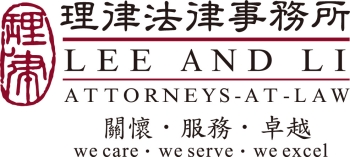Pursuant to the Code of Civil Procedure, a plaintiff may not amend its statement of claim or raise additional claims after the service of the complaint unless the defendant agrees or the amendment or addition fulfils specific legal requirements – for example, the amendment of or addition to the statement of claim:
- is based on the same transaction or occurrence; or
- relates merely to the expansion or reduction of the demand for judgment for the relief sought.
Under the Intellectual Property Case Adjudication Act 2008, the alleged infringer may counter the accusation by challenging the validity of the patent concerned. The court will then rule based on the merits of the case.
In order to respond to an invalidity challenge, patentees often apply to the Taiwan Intellectual Property Office (TIPO) during the suit for post-grant amendment, asking the court to render a decision based on the amended scope of the patent claim. In practice, the IP Court allows patentees to apply for a post-grant amendment during the proceedings. If the post-grant amendment is deemed acceptable, the IP Court will make a decision on the patent validity and infringement issues based on the amended scope of the patent claim. However, there has been debate over whether an application for post-grant amendment after a patentee has filed a complaint constitutes an amendment of the statement of claim. A study of relevant judgments issued by the IP Court shows that the court mostly treats the situation as a means of attack or defence adopted by the patentee that does not involve amendment of the statement of claim in order to give patentees an opportunity to assert the validity of the patent through corrective defence.
However, in Judgment 2012-Ming-Zhuan-Shang-Zi-28 (August 2013) the IP Court held that an application for post-grant amendment by a patentee after filing an appeal constitutes an amendment of the statement of claim. If the defendant provides the same prior art references to challenge the validity of the amended patent claim as those provided in the original trial, the major issues of contention after the post-grant amendment are considered to be the same, and the amendment of or addition to the statement of claim is based on the same transaction and may be allowed without the defendant's consent. In the case at hand, the Supreme Court issued a third-instance judgment on September 2 2015 (2015-Tai-Shang-Zi-1651) dismissing the IP Court's decision. The Supreme Court stated that if the second-instance court has determined that the amendment constituted an amendment of the statement of claim and that such amendment was lawful, the patentee's pending action in the original lawsuit no longer exists due to the amendment of the statement of claim, whereas the second-instance court could hear only the case involving the amended statement of claim and could not render a decision based on the original first-instance decision. The Supreme Court expressed no view on whether a post-grant amendment filed in a pending action constitutes an amendment of the statement of claims.
In practice, the IP Court hears cases involving post-grant amendment directly and, if the post-grant amendment is deemed permissible, the court will make a decision on the patent validity and infringement issues based on the amended scope of the patent claim. The judgments rendered by the IP Court following the above-mentioned Supreme Court decision demonstrate that the IP Court has not changed its practice. However, the subsequent development of court practice remains to be seen.




